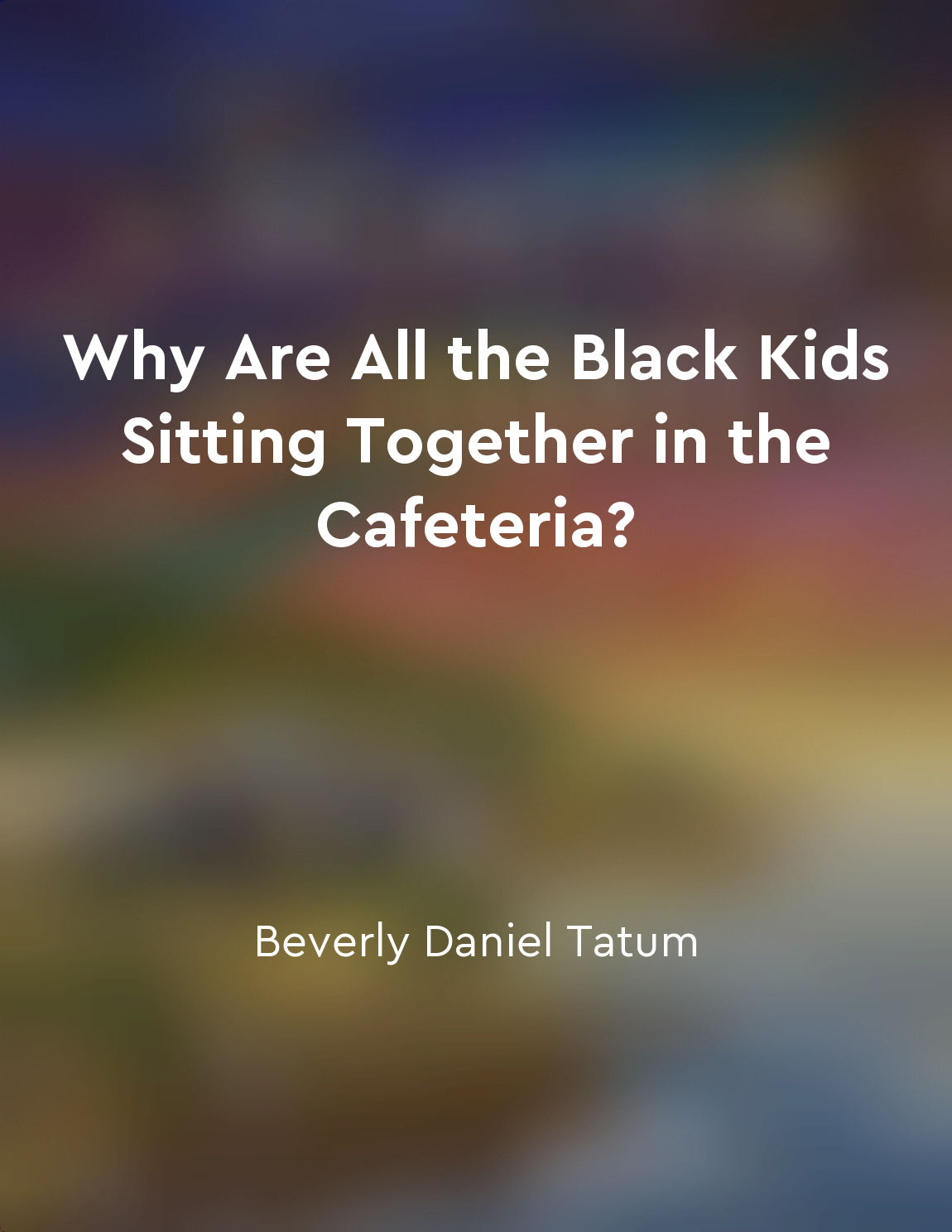Education is key to combating racism from "summary" of So You Want to Talk About Race by Ijeoma Oluo
To truly tackle the deeply ingrained issue of racism in our society, we must first acknowledge that education is fundamental to this fight. Education is not just about reading books or attending lectures; it is about actively seeking to understand the perspectives of others, particularly those who have been marginalized and oppressed because of their race. By educating ourselves on the historical context of racism and how it continues to manifest in our everyday lives, we can begin to dismantle the systems that perpetuate racial inequality. This means confronting uncomfortable truths about our own privilege and biases, and being willing to listen and learn from those who have experienced racism firsthand. Education also plays a crucial role in empowering individuals to become advocates for racial justice. When we are knowledgeable about the ways in which racism operates, we are better equipped to challenge discriminatory practices and policies in our communities and workplaces. We can use our voices to speak out against injustice and support marginalized groups in their fight for equality. Furthermore, education helps us to develop empathy and compassion for others. When we take the time to educate ourselves about the experiences of people from different racial backgrounds, we are better able to connect with them on a human level. This fosters a sense of solidarity and unity that is essential for building a more inclusive and equitable society.- Education is key to combating racism because it enables us to critically analyze the root causes of racial injustice and take meaningful action to address them. It allows us to break free from the ignorance and apathy that allow racism to persist, and instead empowers us to work towards a future where everyone is treated with dignity and respect, regardless of their race.
Similar Posts
Educational policies have significant impacts on power relations
Educational policies are not simply neutral guidelines that shape educational practice. They are powerful tools that reflect an...
Inequities in education are influenced by race and class disparities
Inequities in education are deeply intertwined with race and class disparities. These disparities manifest in various aspects o...
Systemic racism perpetuates inequality in the education system
The issue of systemic racism in education is deeply rooted in our society, perpetuating a cycle of inequality that disproportio...
White
White people are not actually white. They are a pinkish beige color. The term "white" is a social construct that has been used ...
Nonviolent resistance can be effective in bringing about change
In the face of injustice and oppression, the idea of nonviolent resistance shines brightly as a potent force for change. This c...

Race plays a significant role in how we perceive ourselves and others
Race is a powerful social construct that shapes our identities and influences how we interact with others. From a young age, we...
The Dream is a vision of wealth and success for white Americans
The Dream is a vision of prosperity and achievement that has been passed down through generations, woven into the fabric of Ame...

Systemic racism affects all areas of life
The idea that systemic racism impacts every aspect of our lives is crucial to understanding how deeply entrenched it is in our ...
Empowering marginalized communities is key to advancing educational justice
The central idea that underpins the pursuit of educational justice is the empowerment of marginalized communities. When we spea...

